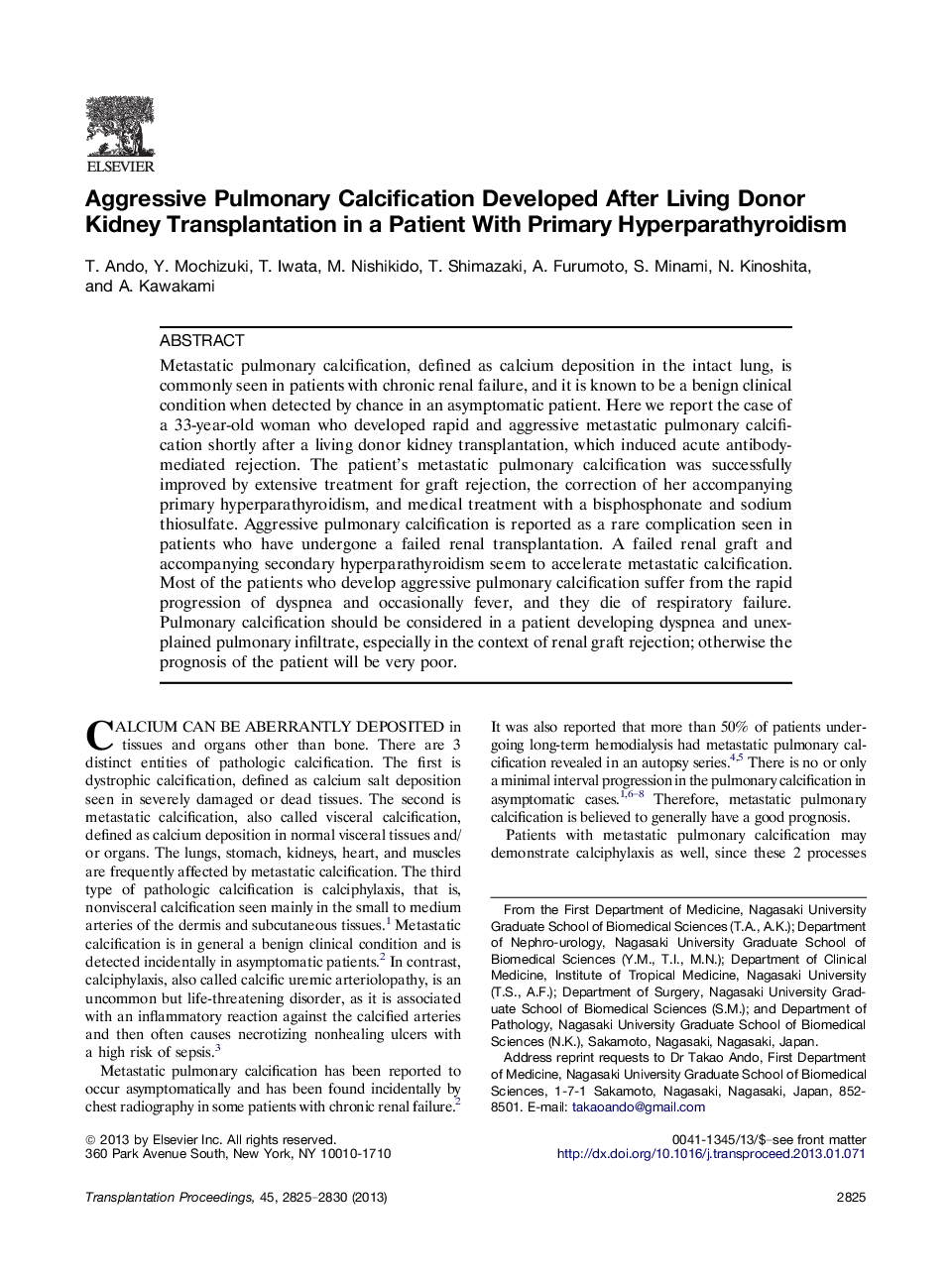| Article ID | Journal | Published Year | Pages | File Type |
|---|---|---|---|---|
| 4256966 | Transplantation Proceedings | 2013 | 6 Pages |
Metastatic pulmonary calcification, defined as calcium deposition in the intact lung, is commonly seen in patients with chronic renal failure, and it is known to be a benign clinical condition when detected by chance in an asymptomatic patient. Here we report the case of a 33-year-old woman who developed rapid and aggressive metastatic pulmonary calcification shortly after a living donor kidney transplantation, which induced acute antibody-mediated rejection. The patient's metastatic pulmonary calcification was successfully improved by extensive treatment for graft rejection, the correction of her accompanying primary hyperparathyroidism, and medical treatment with a bisphosphonate and sodium thiosulfate. Aggressive pulmonary calcification is reported as a rare complication seen in patients who have undergone a failed renal transplantation. A failed renal graft and accompanying secondary hyperparathyroidism seem to accelerate metastatic calcification. Most of the patients who develop aggressive pulmonary calcification suffer from the rapid progression of dyspnea and occasionally fever, and they die of respiratory failure. Pulmonary calcification should be considered in a patient developing dyspnea and unexplained pulmonary infiltrate, especially in the context of renal graft rejection; otherwise the prognosis of the patient will be very poor.
